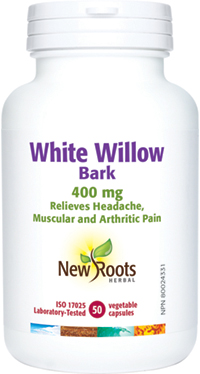-
Products
CategoryGender / Life StageHealth BenefitsRecommendedNew Products Amino Acids / Proteins Antioxidants Enzymes Essential Fatty Acids Exotic Skin Oils Functional Foods Glandular Extracts Herbs and Herbal Extracts Keto Diet Medicinal Mushrooms Probiotics Vitamins / Minerals50+ Health Children’s Health Gastrointestinal Conditions Maternity Men’s Health Women’s Fertility Women’s HealthBlood Glucose Management Cardiovascular Health Cholesterol Management Detoxification Digestive Health Energy Eye Health Hair / Skin / Nails Headache / Migraine Heart Function Immune Health Memory Help Metabolic Detoxification Mood Enhancement Muscle / Bone / Joint Health Neurological / Memory Health Neurological Health Oncology Adjuvant Therapy Pain and Inflammation Parasitic and Fungal Management Sleep Aid Sport Nutrition Stress / Mood / Sleep Stress Management Weight ManagementChoosing Your Probiotics Boost Your Immunity Vitamin D Studies How Healthy is Your Prostate? How Is Stress Affecting You? Magnesium—A National Deficiency Choose to Care - Vitamin D to Ukraine Exotic Oils for Exquisite Skin Medicinal Mushrooms Don’t Let Pain Stop You! Let us solve the O‑MEGA problem! Essential Oils Cardiac Health
- About Us
- Flourish
-
Stores
White Willow
Code 0818
UPC: 6-28747-10818-8
NPN: 80024331
Format: Vegetable Capsules
Relieves Headache, Muscular and Arthritic Pain
 Find Local Stores
Find Local Stores
Description
White willow bark contains salicin, which is a monoglycoside of salicilic acid. This may sound familiar, as this plant is where the common pain reliever aspirin comes from. It is used for inflammation and pain.
The bark of this tree is known principally because of its properties to relieve pain and reduce fever. In the 19th century, a French chemist extracted the principal active ingredient of the willow and called it salicin. At the end of the 19th century, Felix Hoffmann, chemist for the Bayer company, produced the aspirin or acetylsalicilic acid. Nowadays, the tendency is to go back to the natural remedy to avoid the side effects of aspirin.
The willow’s bark contains glycosides; the most famous and active of them is salicin, which is a monoglycoside of salicilic acid. Salicilic acid is a soft anti-inflammatory agent, but it converts itself in acetylsalicilic acid in the body; this way, we get the most effective action of the “aspirin,” but without the gastrointestinal toxicity.
The willow’s bark has the properties of treating fever and inflammation as well as cleaning the blood, and it helps to exchange the nutritive and excretive processes gradually, restoring normal function of the body. It stimulates digestion, eliminates acumulations, and helps in heavy digestion.
Directions of Use
Adults: Take 3 capsules three times daily or as directed by your health-care practitioner.
Ingredients
| Each vegetable capsule contains: | |
| White willow (Salix alba) bark | 400 mg |
| Other ingredients: Vegetable magnesium stearate in a non-GMO vegetable capsule composed of carbohydrate gum and purified water. | |
Warnings
Contains no: Gluten, soy, wheat, corn, eggs, dairy, yeast, citrus, preservatives, artificial flavour or colour, starch, or sugar.
Cautions and warnings: Do not use if you are taking blood thinners; herbs or medications containing acetylsalicylic acid (ASA) or other salicylates; or if you are pregnant or breast-feeding. Consult a health-care practitioner if you experience gastrointestinal adverse effects, or if symptoms persist or worsen. Consult a health-care practitioner prior to use If you have asthma or peptic ulcer disease.
Contraindications: Do not take if you are allergic to acetylsalicylic acid (ASA) or other salicylates.
Known adverse reactions: Discontinue use if allergic symptoms (skin rash, itchiness) occur.
Disclaimer
| Code | Format | Size |
|---|---|---|
| 0818 | Vegetable Capsules | 50 capsules |

